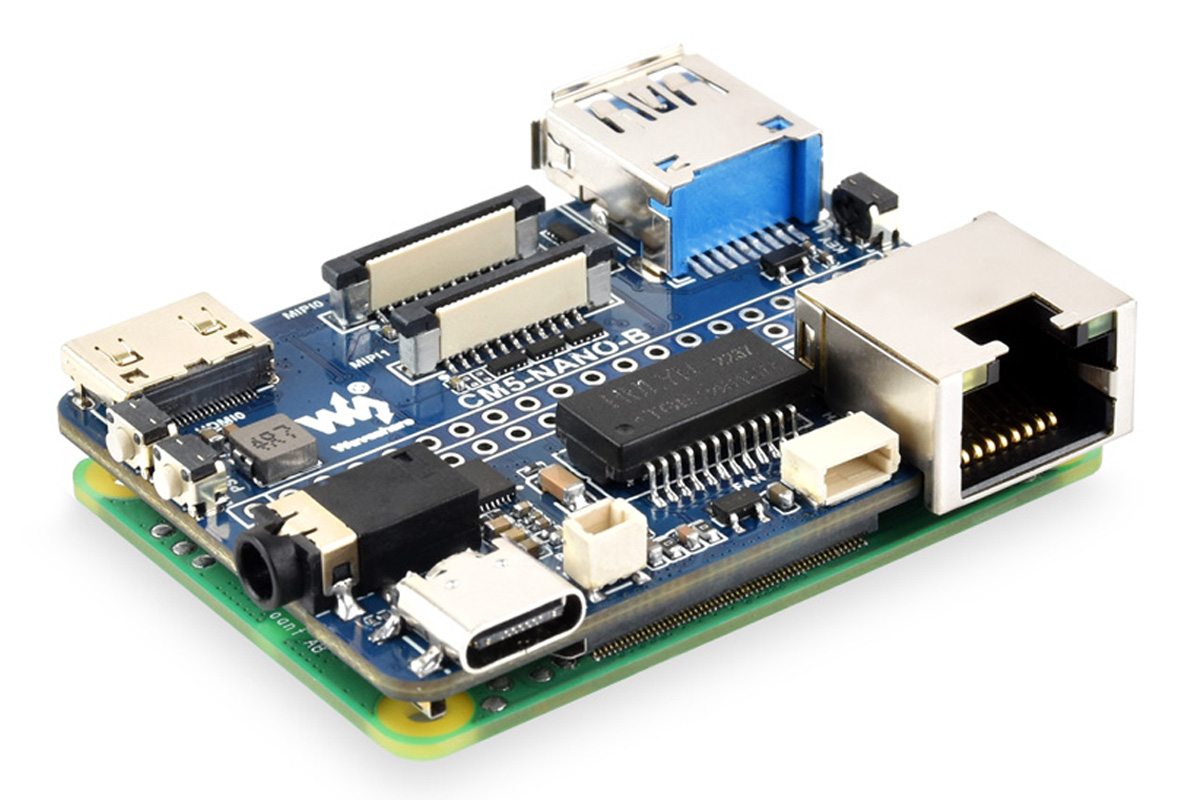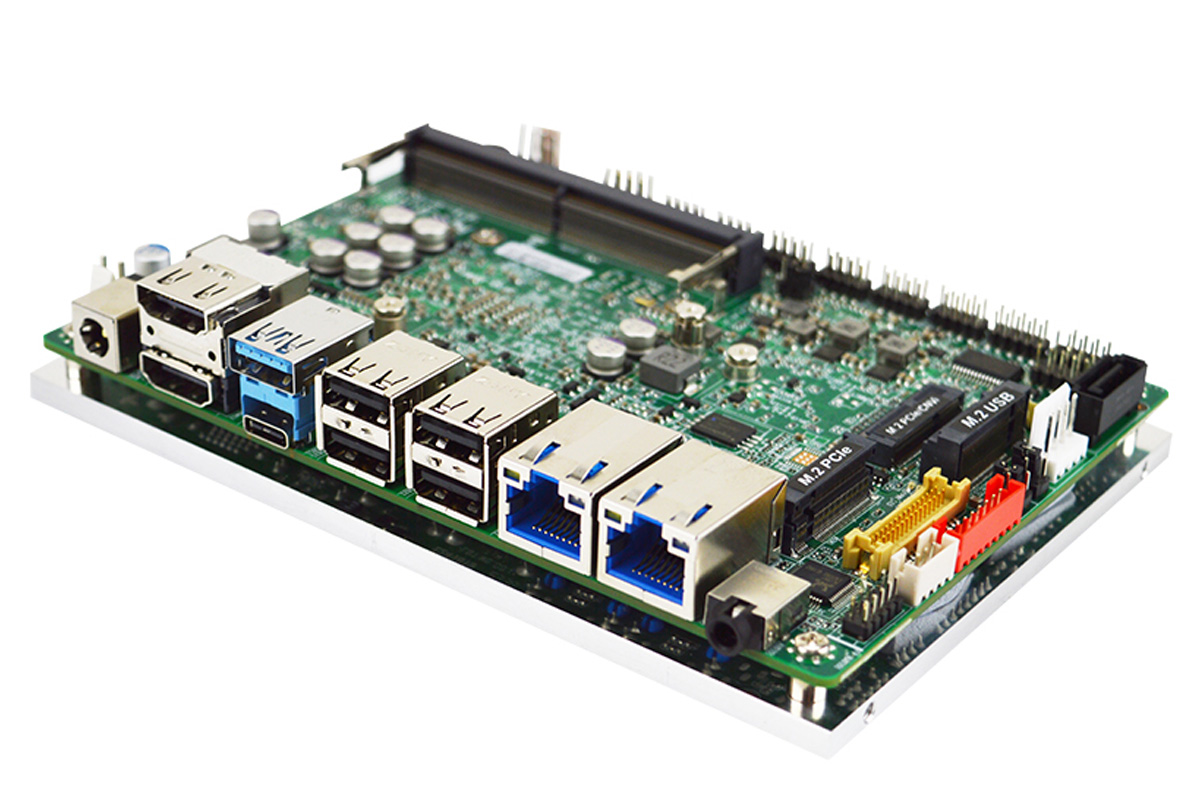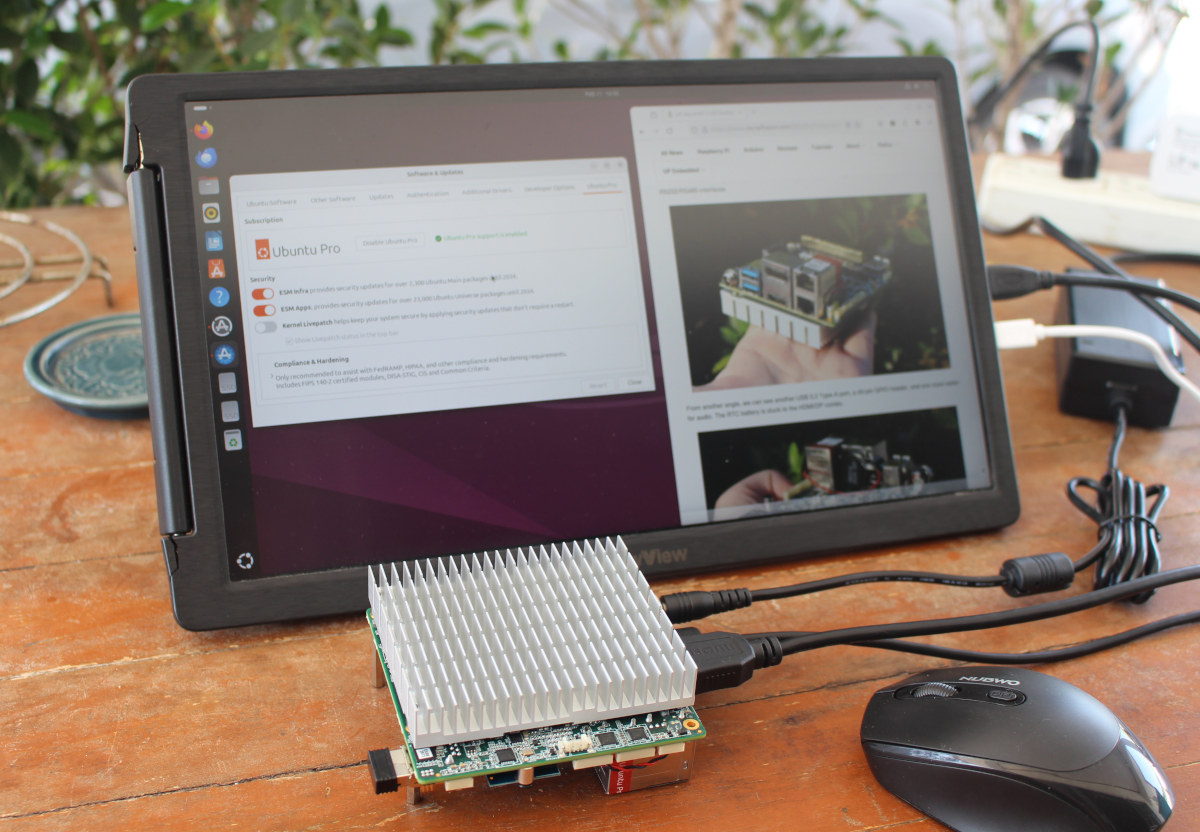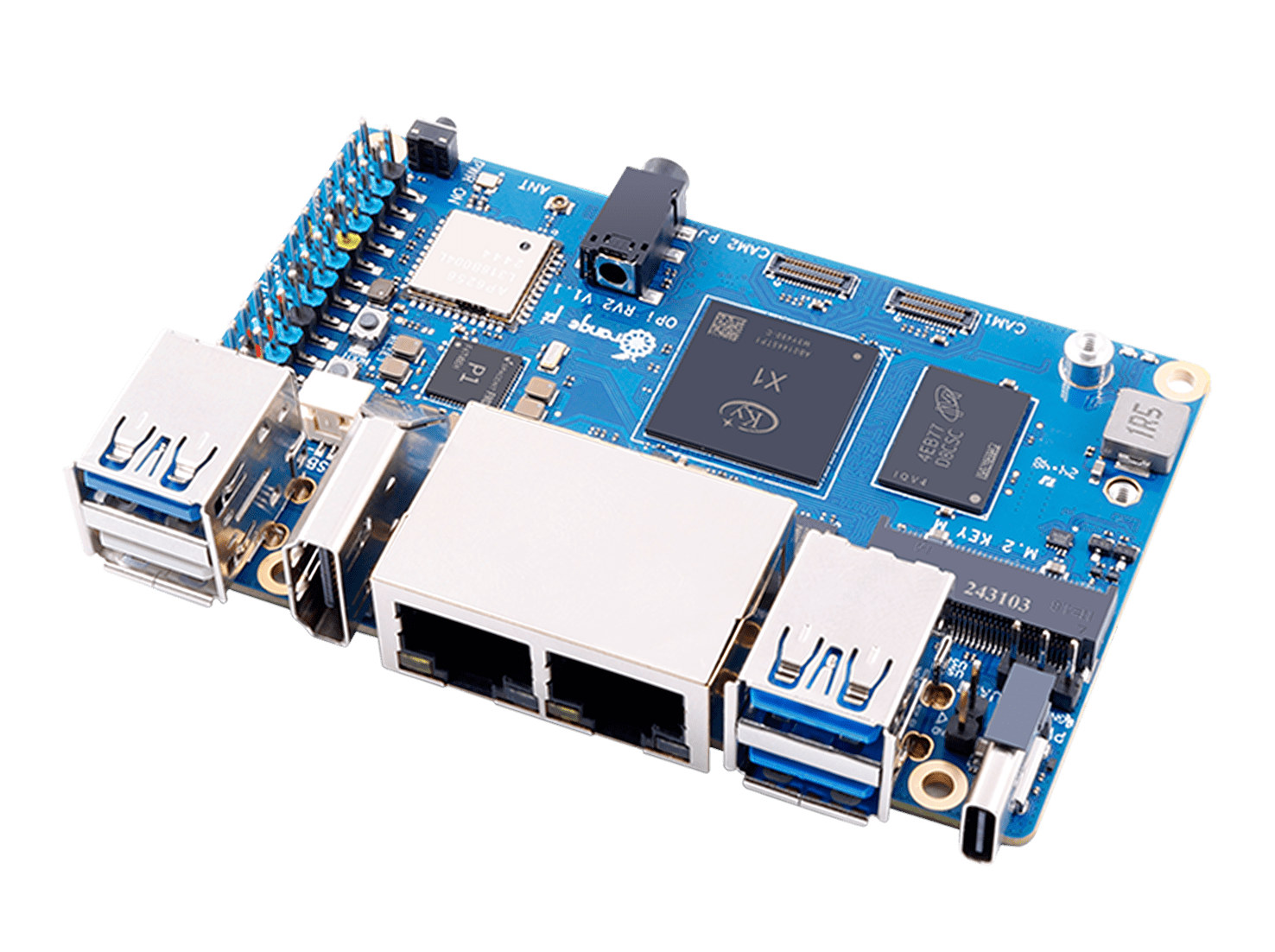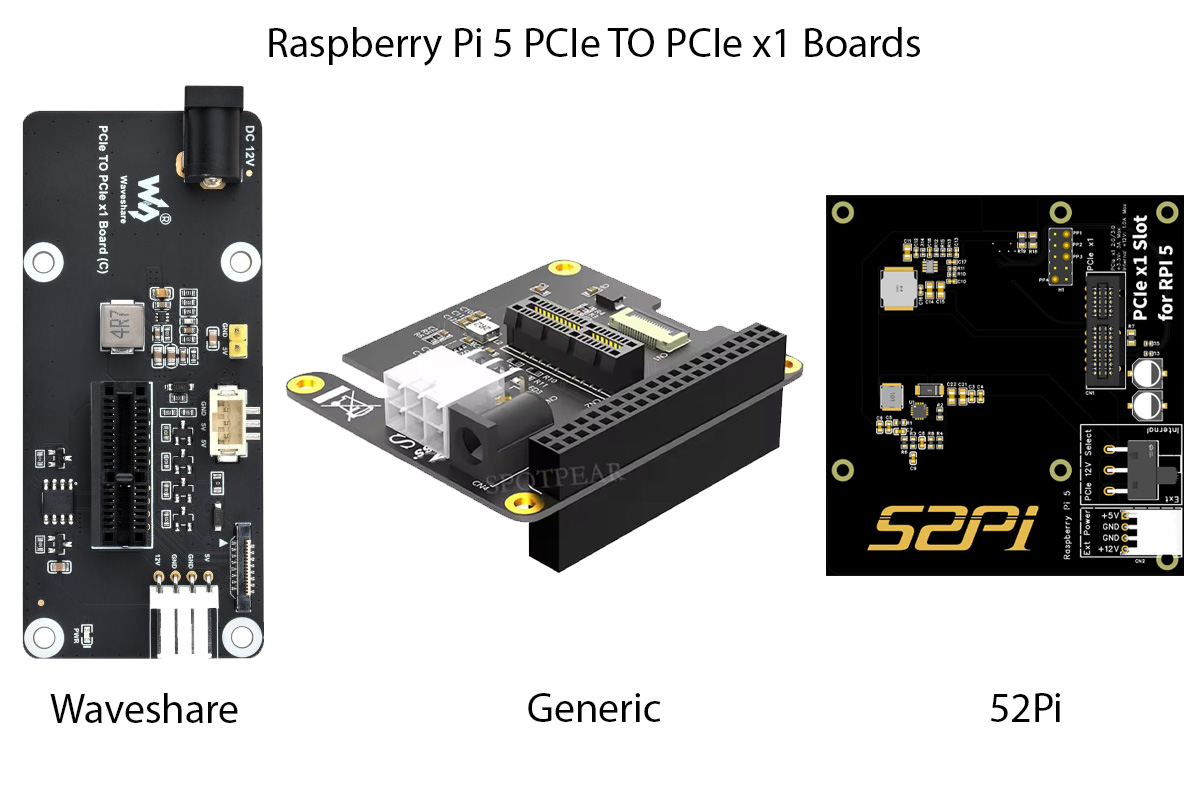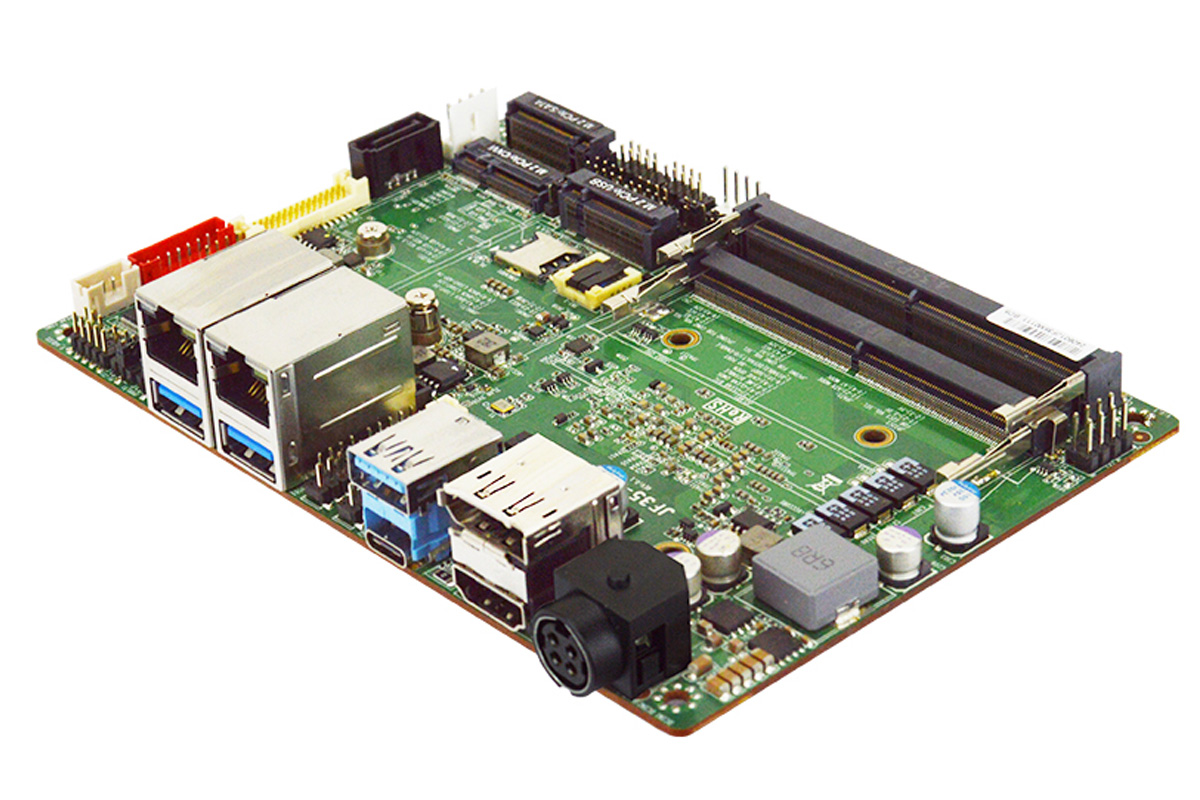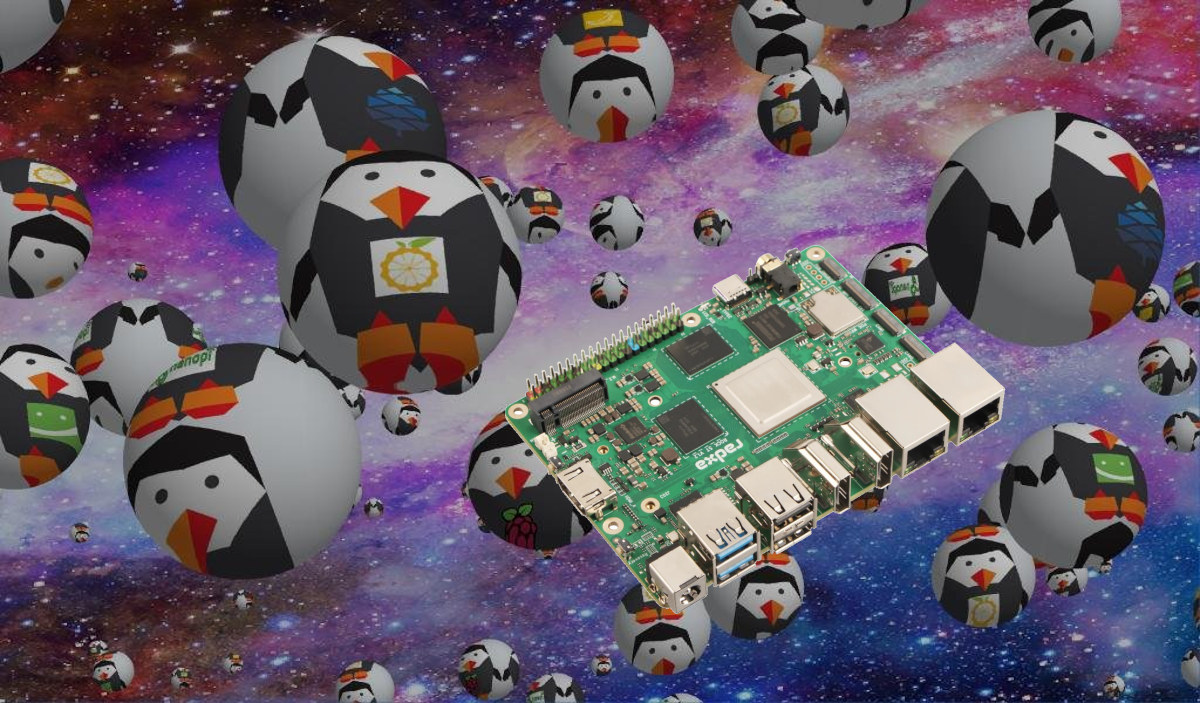IMD Technologies has recently introduced the IMDT V2N SoM based on the newly launched Renesas RZ/V2N low-power AI MPU and its SBC carrier board designed for robotics, smart cities, industrial automation, and IoT applications. The SoM ships with 8GB RAM and 32GB eMMC flash, and supports various interfaces through B2B connectors including two 4-lane MIPI CSI-2 interfaces, a MIPI DSI display interface, and more. The SBC supports MIPI DSI or HDMI video output, dual GbE, WiFi 4 and Bluetooth 5.2, as well as expansion capabilities through M.2 sockets. IMDT V2N SBC specifications: IMDT V2N SoM SoC – Renesas RZ/V2N Application Processor – Quad-core Arm Cortex-A55 @ 1.8 GHz (0.9V) / 1.1 GHz (0.8V) L1 cache – 32KB I-cache (with parity) + 32KB D-cache (with ECC) per core L3 cache – 1MB (with ECC, max frequency 1.26 GHz) Neon, FPU, MMU, and cryptographic extension (for security models) Armv8-A architecture System Manager […]
Waveshare CM5-NANO-B is a compact Raspberry Pi CM5 carrier board with the same dimensions as the Compute Module 5
Waveshare has just released the CM5-NANO-B, a compact Raspberry Pi CM5 carrier board, with the same dimensions as the Compute Module 5 and multiple peripheral interfaces making it suitable for industrial automation, IoT, embedded computing, AI development, and other space-constrained applications. Key features include a Gigabit Ethernet RJ45 port, an unpopulated 40-pin Raspberry Pi GPIO header, a USB 3.2 Gen1 Type-A port, dual MIPI 4-lane interfaces, a mini HDMI port supporting 4K output, a USB audio 3.5mm jack, a microSD card slot, and a 16-pin PCIe Gen2/3 x1 connector. Power is supplied via a USB-C port (5V/5A), and additional features include an RTC battery header, a 4-pin PWM fan header, a dual-color LED indicator, and user-configurable buttons. Waveshare CM5-NANO-B specifications: Compatibility – Raspberry Pi Compute Module 5 (CM5) Storage – MicroSD card slot (for Raspberry Pi CM5 Lite) Display Mini HDMI output up to 4K resolution Up to 2x MIPI […]
Jetway F35-ASL1 – A 3.5-inch Intel Atom x7433RE SBC with dual 2.5GbE, six COM ports, and triple 4K display outputs
Jetway F35-ASL1 3.5-inch subcompact SBC is built around the Intel Atom x7433RE (Amston Lake) processor and designed for industrial and embedded applications. This SBC supports up to 32GB of DDR5 4800MHz memory and offers triple display output via two HDMI ports, one USB Type-C DP, and an LVDS/eDP interface. It also includes two 2.5Gbps Ethernet ports, optional WiFi and Bluetooth and/or 4G LTE /5G cellular connectivity via M.2 slots. Storage options include a SATA III port, an M.2 M-Key, and an optional onboard 64GB eMMC. The board provides extensive I/O with one USB 3.2 Gen 2 Type-C, one USB 3.2 Gen 2, eight USB 2.0, and six COM ports. Built for industrial environments, it features a wide DC input range (12–28V) with power protection mechanisms (RVP, OCP, and OVP), and a rugged design supporting shock and vibration resistance. It is suitable for industrial automation, edge computing, IoT, digital signage, and […]
UP Squared 7100 Review – Part 2: An Intel N100 fanless SBC preloaded with Ubuntu Pro 24.04
I’ve already checked out the hardware of the UP Squared 7100 fanless SBC in the first part of the review with an unboxing and first boot to Ubuntu Pro 24.04. I’ve now had time to test the features of the Intel N100 SBC with Ubuntu Pro, so I’ll report my experience with the system in this second part of the review.
I’ll report my experience with Ubuntu Pro features, test hardware features of the board including GPIOs, check out BIOS options, run a few benchmarks, and measurement power consumption.
Orange Pi RV2 – A $30+ RISC-V SBC powered by Ky X1 octa-core SoC with a 2 TOPS AI accelerator
While the Orange Pi RV RISC-V SBC introduced at the Orange Pi Developer Conference 2024 last year is yet to be launched (should be up in a few days), the company has just launched the Orange Pi RV2 powered by the Ky X1 octa-core RISC-V SoC with a 2 TOPS AI accelerator, up to 8GB LPDD4X, optional eMMC flash moduyle, two M.2 sockets for storeage, dual gigabit Ethernet, WiFi 5, and more. While RISC-V has made a lot of progress over the years, Linux RISC-V SBCs were often synonymous with relatively expensive hardware for developers, since software is often unsuitable for production, at least for applications using graphics. The Orange Pi RV2 addresses the cost issue since the octa-core RISC-V SBC sells for just $30 to $49.90 depending on the configuration. Orange Pi RV2 specifications: SoC – Ky X1 CPU – 8-core 64-bit RISC-V processor GPU – Not mentioned VPU […]
PCIe x1 slot adapters let the Raspberry Pi 5 SBC interface with standard PCIe cards
Waveshare has recently launched the PCIe TO PCIe x1 Board (C) which is a PCIe FFC connector to standard PCIe x1 slot adapter board for the Raspberry Pi 5. But while searching for more details about the board, I also found out about other solutions from 52Pi and Spotpear, which are a bit older, but still worth taking a look because of their unique features and low cost. These Raspberry Pi PCIe x1 slot adapters allow users to connect expansion cards such as network cards, storage controllers, and other PCIe peripherals to the Raspberry Pi 5. Additionally, the board features a dedicated 12V power header and DC jack, which supplies power to the 12V pins of the PCIe slot, for power-hungry devices. These features allow for applications like AI acceleration, high-speed networking, and storage expansion. Waveshare PCIe TO PCIe x1 Board (C) The Waveshare PCIe FFC to PCIe x1 Adapter […]
Jetway F35-MTU1 3.5-inch SBC features Intel Core Ultra 7 155U or Ultra 5 125U Meteor Lake SoC
Jetway recently launched the F35-MTU1 3.5-inch SubCompact SBC, built around the Intel Core 5 125U and Ultra 7 155U (Meteor Lake) processors which also integrates an NPU for AI acceleration. It supports up to 96GB of DDR5 memory, features dual Intel 2.5GbE LAN with TSN, and supports WiFi 6 and 4G LTE connectivity via M.2 sockets. The board has several 4K display outputs, including DP Type-C, DP, HDMI, and LVDS/eDP. For storage, it offers M.2 slots supporting NVMe, PCIe, and CNVi, along with a SATA III port with RAID 0/1 support for data redundancy. I/O options include USB 3.2, USB 2.0, and four COM ports for serial communication, which can be used to connect external peripherals. With a wide operating temperature range and support for both Windows and Linux, the SBC is well-suited for AI workloads, IoT edge devices, and industrial control systems that demand high performance, connectivity, and reliability. […]
Armbian v25.2 and DietPi v9.11 released with updated Ubuntu and Debian-based Linux images for single board computers
Vendor-provided Linux images for single board computers are not always working optimally, so this post is a regular reminder that users may want to check out Armbian and DietPi projects mostly supported by the community but also backed by some of the vendors who offload some (repackaging) software work to them. Armbian and DietPi are separate projects, but this month, Armbian v25.2 and DietPi v9.11 were almost released simultaneously. I don’t report on each release (should I?), but they release an update every few months. The last time we had a look at both projects was in September 2024 for the releases of DietPi 9.7 and Armbian 24.8. Let’s see what the new releases have to bring. Armbian v25.2 Main changes: New Boards – Rock 2A and 2F, NanoPi R3S, Retroid Pocket RP5, RPMini, Rock 5T, GenBook, MKS-PI, SKIPR, Armsom CM5, NextThing C.H.I.P, Magicsee C400 Plus Rockchip 3588 Improvements – […]



